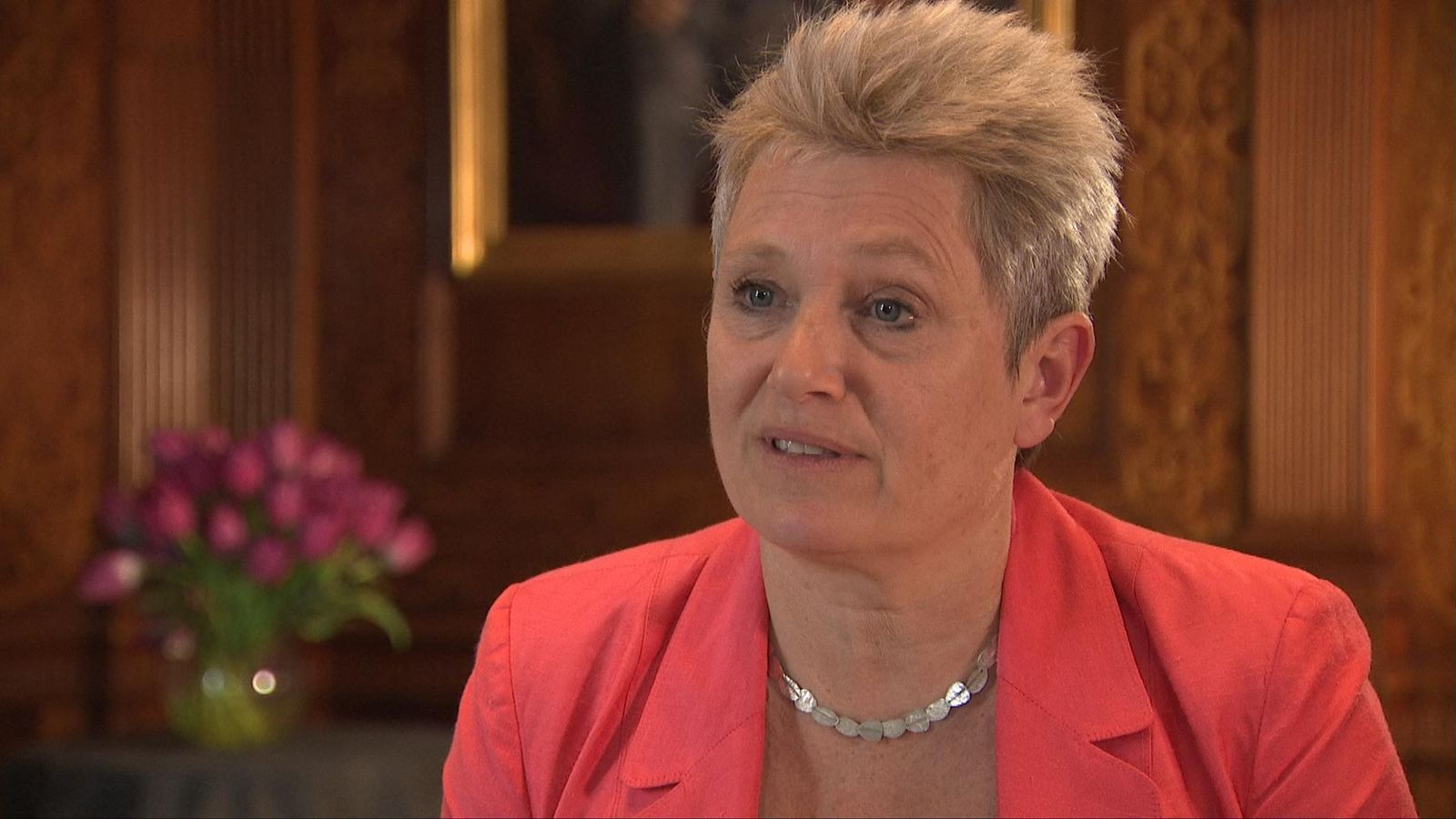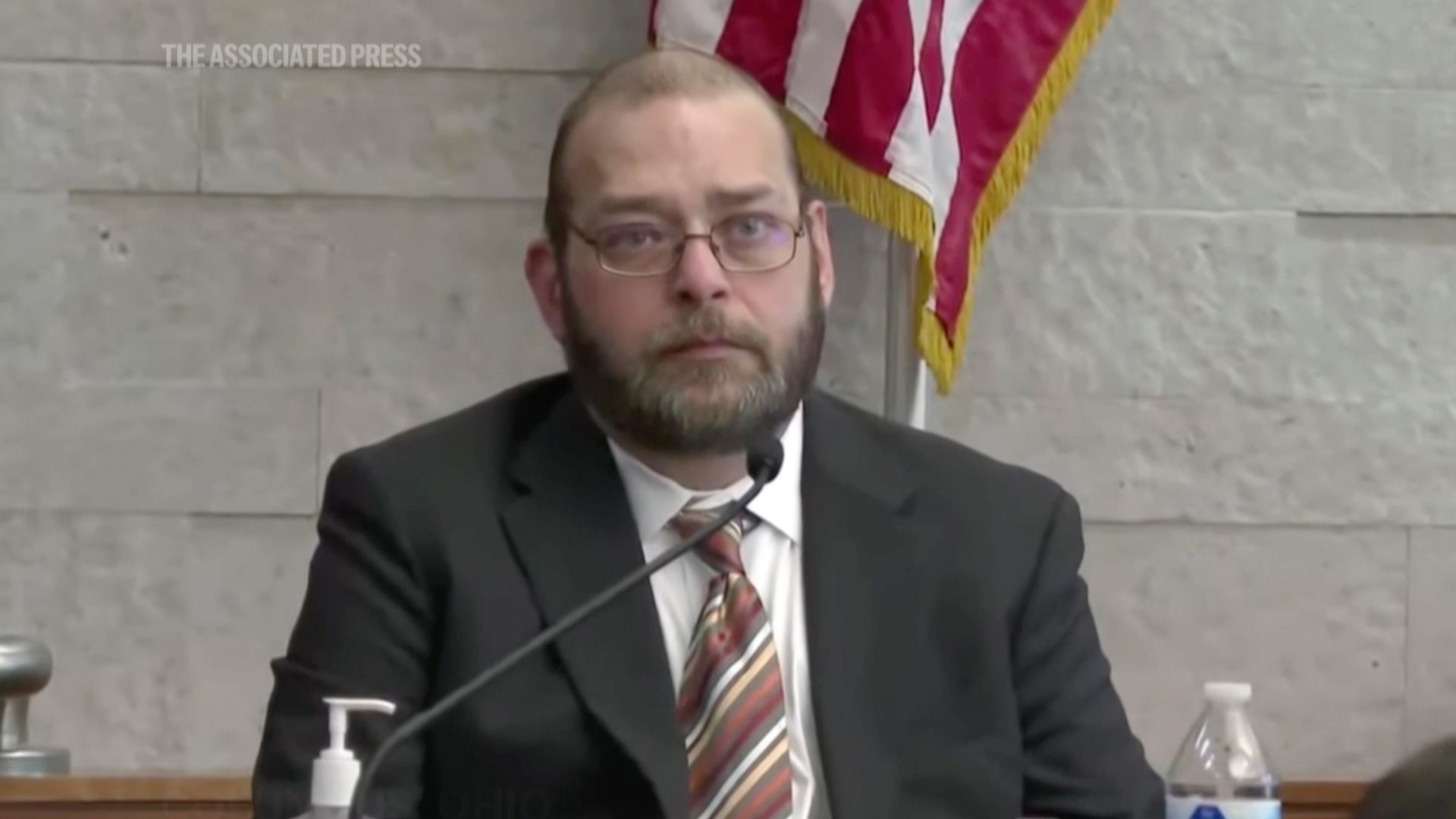The former head of the vaccines taskforce has said the current COVID jabs are “not good enough”.
Dame Kate Bingham, who spearheaded the UK’s vaccination programme in 2020, also accused the government of going “backwards” in its preparation against future pandemics.
Giving evidence to a parliamentary inquiry into lessons to be learned from the coronavirus pandemic, she said: “Our vaccines currently are not good enough.
“We need to improve the quality of the vaccines, the durability, the ability to stop transmission, the way in which we give vaccines.
“Lots of things need to be improved. Our approach seems to have been to go backwards rather than to continue the momentum.”
In her former role, Dame Kate was instrumental in ensuring Britain was the first country in the world to start vaccinating its citizens against coronavirus in December 2020.
But she told MPs from the health and science committees that the UK has now gone “backwards”.
Crowds in major Chinese city Guangzhou clash with riot police in hazmat suits over zero-COVID policy
COVID lab blunder linked to deaths of 23 people, investigators estimate
China protests paused as police flood streets and temperatures drop below freezing
“What’s gone wrong is there’s been no expert or leader that’s put in place to coordinate the activities,” she said.
“Everything from vaccine innovation and scale up to landscaping – figuring out where the new variants may come from, the new potential pandemic viruses – people that understand manufacturing, scaling up clinical development, regulation.
“All of those have gone. Maybe there is somebody secret out there that’s doing that, but not as far as I can see.”
Read more:
How long COVID ruined my life
COVID infections fall across UK
Is coronavirus getting smarter?
Visibly frustrated at times while giving evidence, Dame Kate said she was “baffled” by the government’s decision-making regarding the development of new vaccines.
“To begin with I thought it was a lack of experience of officials since we don’t have a lot of people within Whitehall that understand vaccines, relationships with industry, all of that,” she said.
“But actually, I’m beginning to think this is deliberate government policy – just not to invest and just not to support the sector.
“I cannot explain why we haven’t appointed somebody who can actually bring all this together because we’ve got the capabilities and yet, systematically, things are being dismantled that we put in place.”
Subscribe to the Beth Rigby Interviews… podcast on Apple Podcasts, Google Podcasts, Spotify, and Spreaker
The government is currently in negotiations with US pharmaceutical company Moderna to supply vaccines for a new variant, but a final contract has still not been signed, despite an initial agreement being reached in June.
Asked about why negotiations might be taking so long, Dame Kate said: “Goodness knows. It does not take six months to go from a heads of terms to a binding contract.”
Earlier, the panel of MPs was also given a damning assessment about the UK’s preparedness for future pandemics from leading Oxford scientist Sir John Bell.
The University of Oxford Regius Professor of Medicine said: “A novel new pandemic that might occur any time in the next ten years.
“What worries me is we’re being distracted, for very good reasons – cost of living, energy, war in Ukraine – and people have kind of forgotten about the pandemic.
“But the reality is another pandemic could be much worse than the last one we had, so we do need to keep attuned to that.”
Professor Bell also said the government needed to rethink its covid booster vaccination strategy.
Please use Chrome browser for a more accessible video player
“The boosters are not really providing any prolonged protection against transmission.
“You could have one now and by mid-January you’d be getting very little protection against transmissions whereas, interestingly, natural infection is much more effective.
“The effect of natural infection in terms of preventing reinfection with Covid lasts about 180 days which is a material amount.
“So I think we do need to think quite hard about our vaccination strategy with boosters now.”








